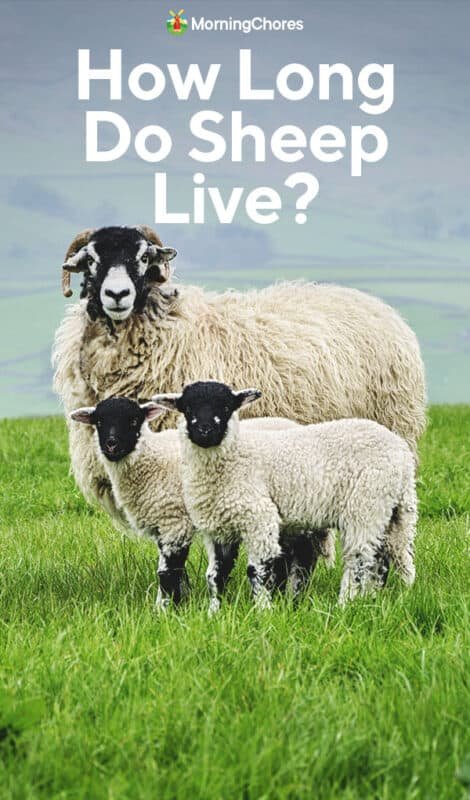
Imagine raising a sheep like nurturing a plant. Just as some plants thrive in specific environments while others may struggle, sheep have needs that influence their lifespan. So, let’s dive into the fascinating world of sheep longevity and the signs of aging that come with it.
The Average Lifespan of Sheep
Generally, a sheep’s lifespan ranges from 10 to 12 years. However, many factors can influence this number. For instance, domestic sheep often live longer than their wild counterparts. Some breeds, like the Dorset, can even live up to 16 years with proper care!
On the flip side, sheep that roam in the wild face various threats—predators, harsh weather, and limited food sources—typically reducing their lifespan to around 5 to 7 years. So, while a well-cared-for pet sheep might enjoy a longer life, wild sheep must navigate a much tougher existence.
Factors Affecting Sheep Lifespan
Just like humans, several factors can affect how long a sheep might live. Here are some key players:
- Breed: Different breeds have different characteristics. For example, some breeds are more resistant to diseases.
- Diet: A balanced diet rich in nutrients can boost their immune system, keeping them healthy and active longer.
- Environment: A safe, clean, and comfortable living space contributes to a sheep’s overall health.
- Veterinary care: Regular check-ups and vaccinations can prevent diseases that might shorten a sheep’s life.
Here’s the thing: providing a good lifestyle can increase a sheep’s chances of living longer. If you’re considering raising sheep or just curious, understanding these factors is crucial.
Signs of Aging in Sheep
As sheep grow older, they also show signs of aging that may indicate their needs are changing. Here are a few you might notice:
- Physical appearance: Their wool might become coarser, and they may develop a more pronounced bone structure as they lose muscle mass.
- Behavior changes: Older sheep might be less active and prefer resting more than they did in their youth.
- Dental health: You can often tell a sheep’s age by looking at their teeth. Younger sheep have all their baby teeth, while older sheep will show wear and even loss of some teeth.
These signs may not just depict aging; they can also highlight the need for extra care. Paying attention to these changes can help a sheep stay comfortable in its later years.
The Role of Diet in Lifespan
You might be wondering how diet plays a role in how long sheep live. Just like us, a balanced diet is crucial for maintaining good health. Sheep thrive on grass, hay, grains, and proper minerals. Here’s what to keep in mind:
1. Forage quality: Grass and hay should be fresh and free from mold or contaminants.
2. Grain supplements: Sometimes, especially in winter, a bit of grain can provide the energy sheep need.
3. Minerals: Salt licks and mineral blocks can provide essential nutrients that promote overall health.
When sheep receive the right nutrients, they’re less likely to suffer from diseases, which can extend their lifespan significantly.
Healthcare Considerations for Longer Lifespan
Providing excellent healthcare is key to helping sheep live longer, happier lives. Regular veterinary check-ups can catch potential issues early, which is critical for preventing diseases. Here’s what to consider:
- Vaccinations: Keeping sheep up-to-date with vaccines protects them against common diseases.
- Parasite control: Regular deworming helps maintain a healthy gut and overall well-being.
- Dental care: Monitoring their teeth and providing dental care when necessary can help prevent pain and dietary issues.
Committing to regular health checks means a better chance for sheep to enjoy a longer life, just like how we visit the doctor for our routine health check-ups.
Creating a Comfortable Living Environment
The living environment plays a significant role in a sheep’s lifespan. Stress-free, safe, and clean spaces contribute to their well-being. Here are some tips to ensure sheep have a perfect home:
– Shelter: Provide a warm, dry place for them to escape harsh weather.
– Space: Ensure they have enough room to roam and graze. Crowded conditions can lead to stress and illness.
– Cleanliness: Regularly clean their living area to prevent disease and promote health.
When sheep feel safe and comfortable, they’re happier, which can lead to a longer life.
So, how long do sheep live? Typically, around 10 to 12 years, but with the right care, they can live even longer. Factors like breed, diet, healthcare, and living conditions all play a role in their lifespan. Paying attention to the signs of aging, providing a balanced diet, ensuring good healthcare, and creating a comfortable environment can make all the difference.
Just like any pet, sheep need love and attention to flourish. If you’re lucky enough to have sheep in your life, you’ll learn the joy of watching them thrive over the years. And that’s something truly special.

